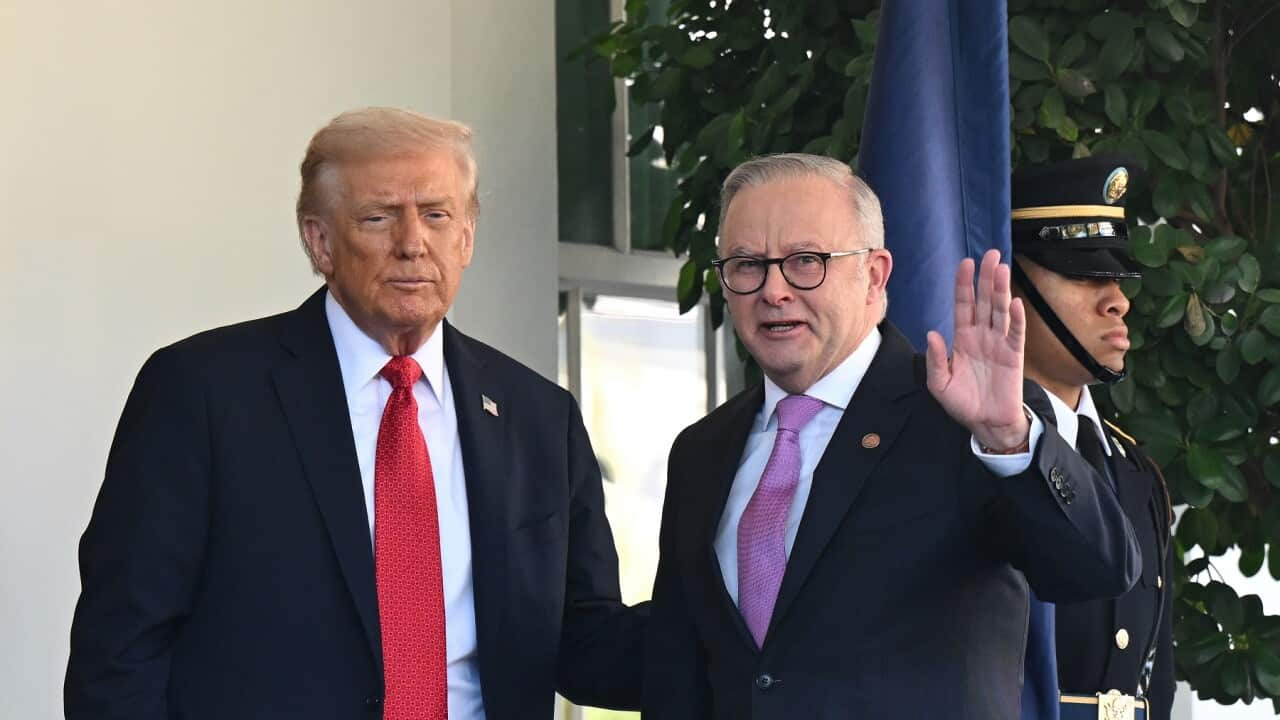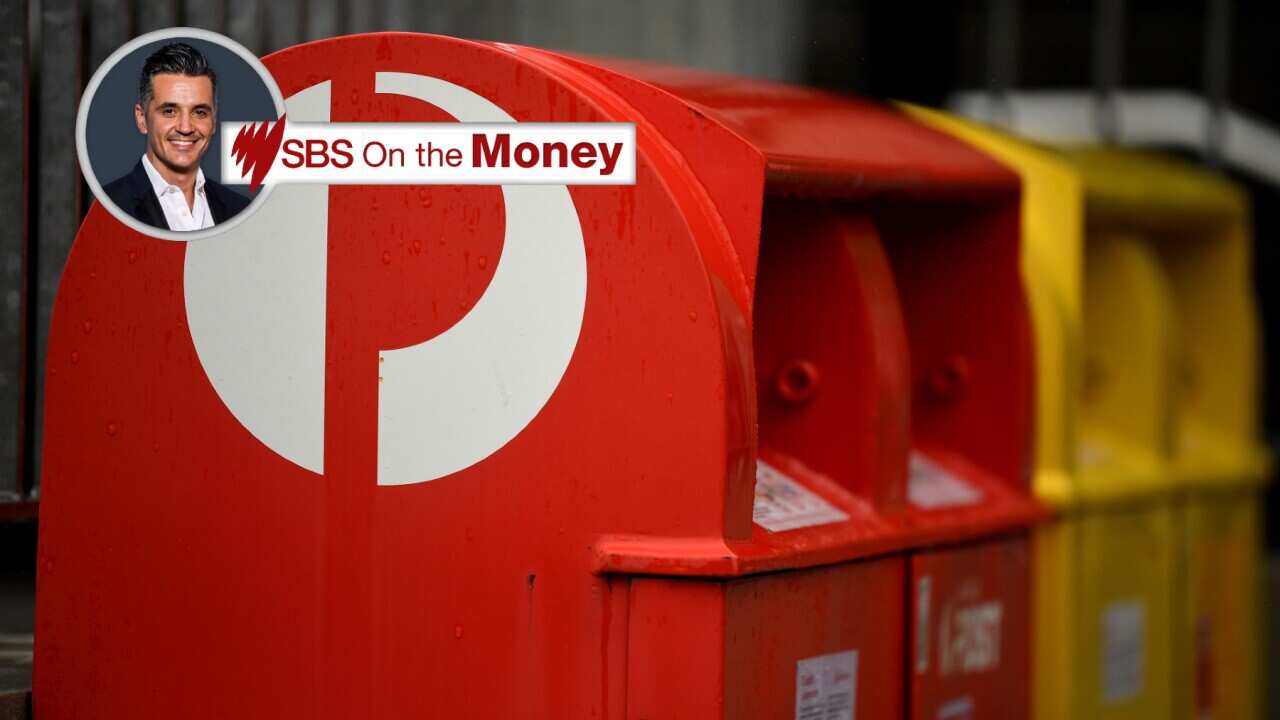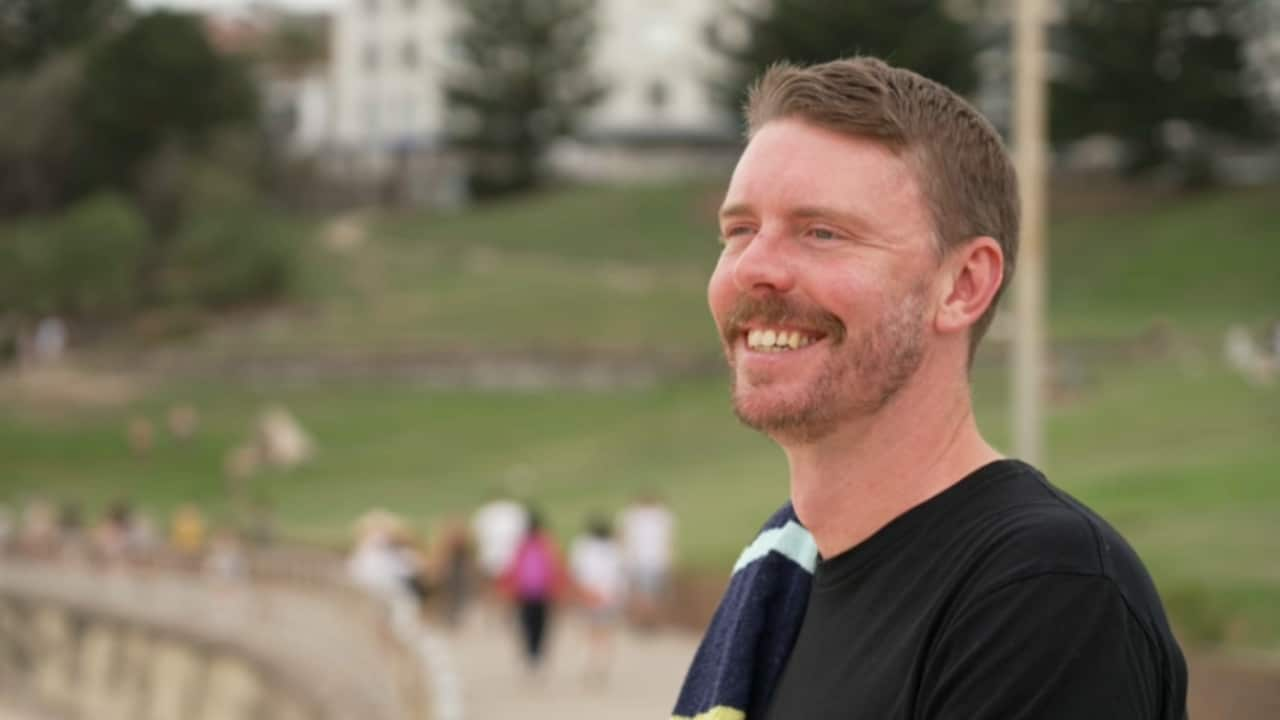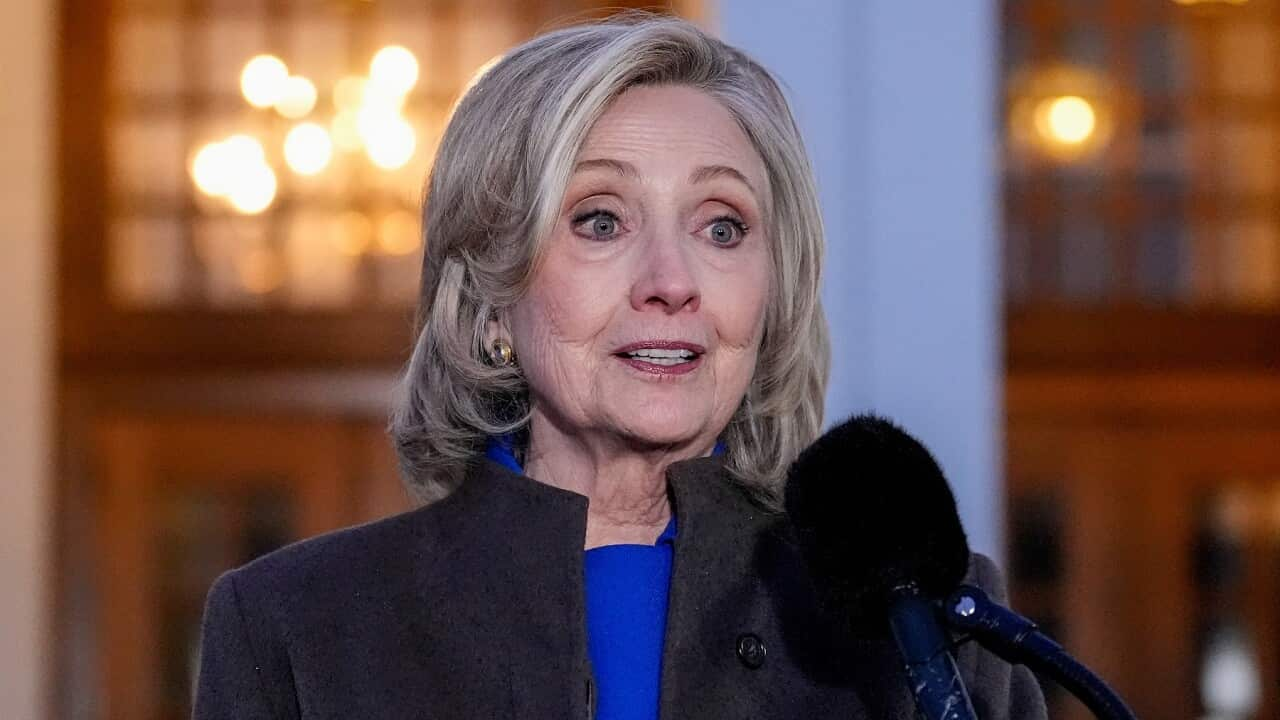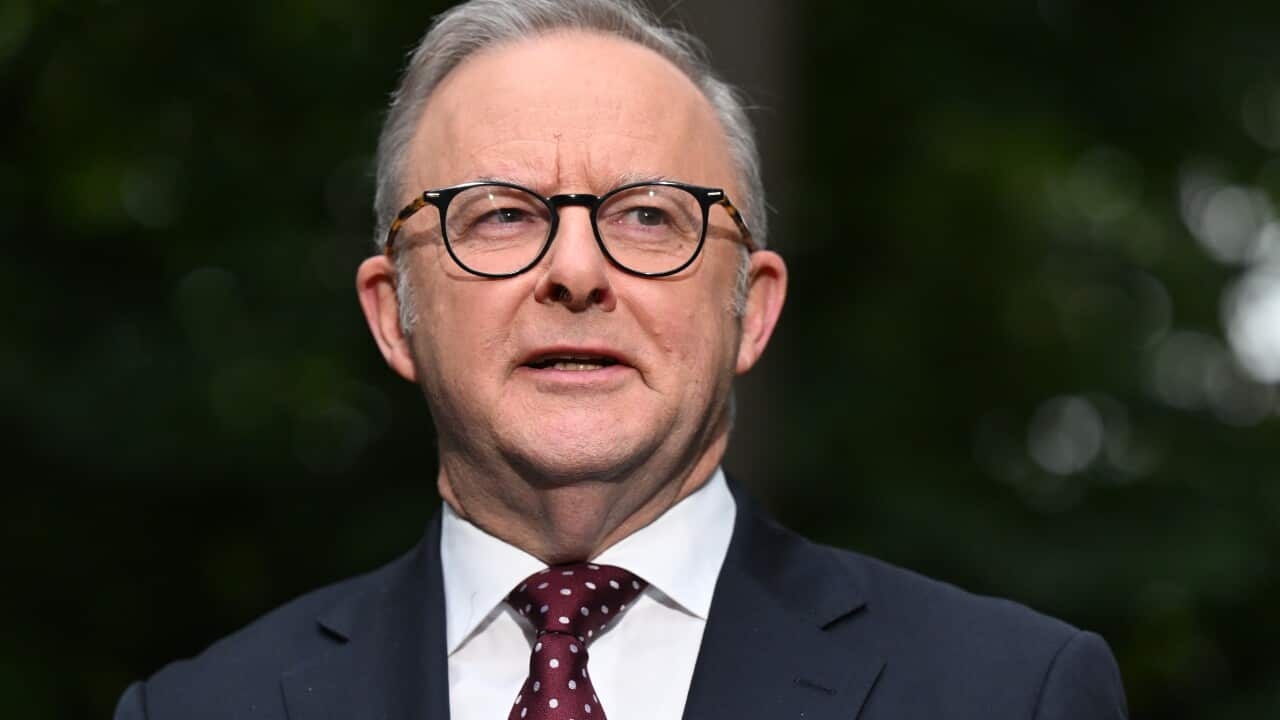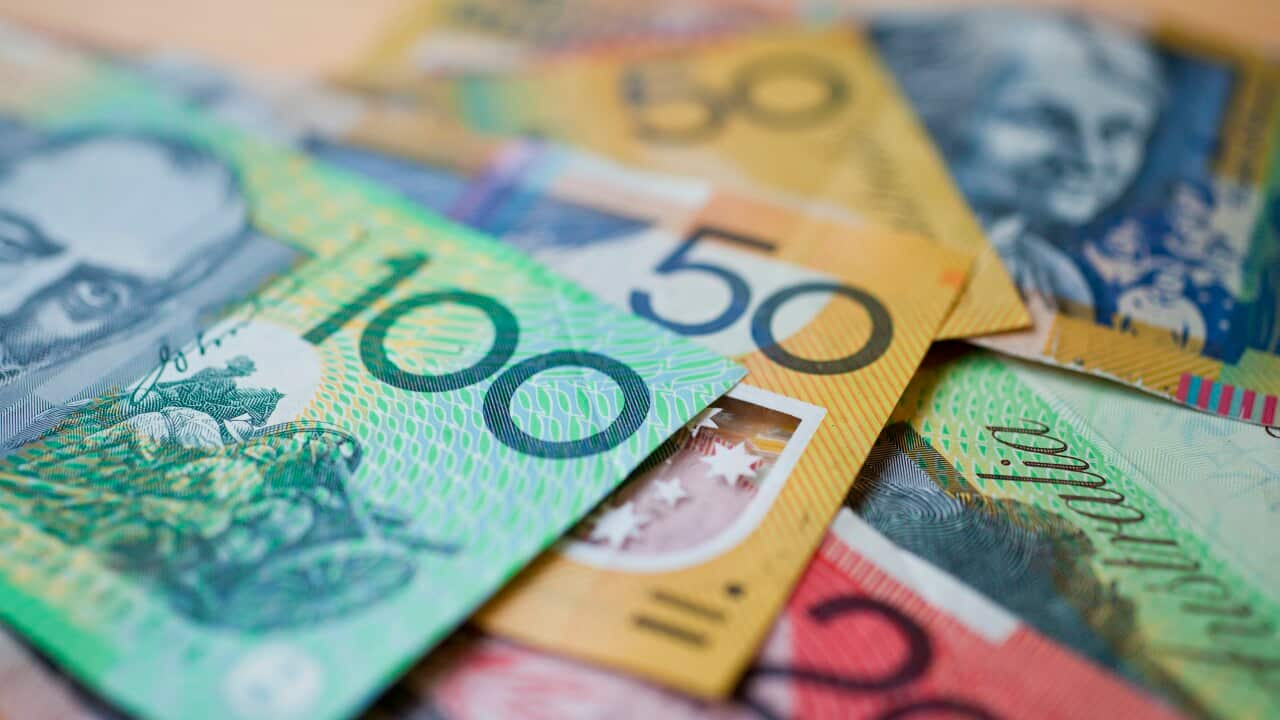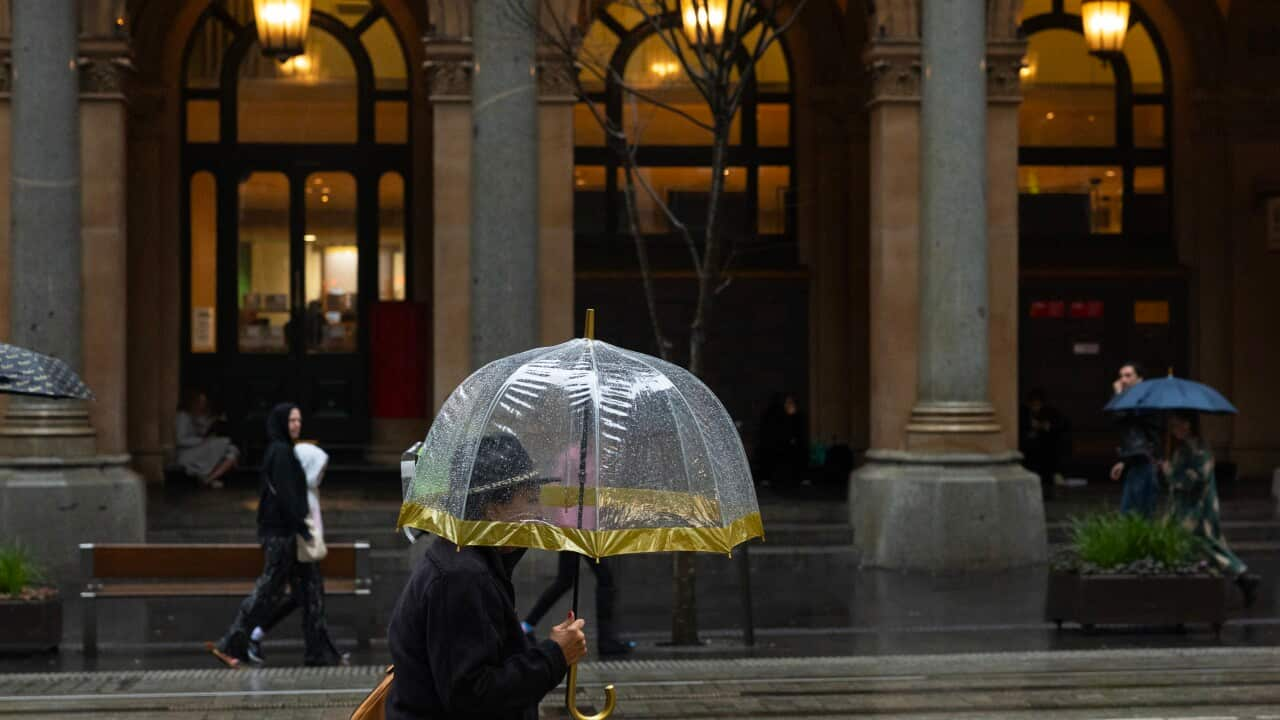Listen to Australian and world news, and follow trending topics with SBS News Podcasts.
TRANSCRIPT
"In about a year from now, we'll have so much critical mineral and rare earths that you won't know what to do with them. They'll be worth about $2. But in the meantime we're working with Australia and other countries. They're working with us too. But other countries also on that. But we're really working on anything having to do with military, military protection, military ships, vehicles, guns, ammunition. Everything."
That was U-S President Donald Trump, touting the benefits of the AU$13.5 billion dollar critical minerals and rare earths deal signed between Australia and the US during Monday's first official in-person bilateral meeting between Mr Trump and the Australian Prime Minister.
The framework is aimed at securing critical minerals and countering China's control over the global supply chain.
These initial commitments include major US investment in building the Alcoa-Sojitz gallium project, a gallium refinery in Western Australia with a capacity of 100 metric tons a year, and a AU$154 million dollar investment in the Arafura Nolans rare earths mine in the Northern Territory. Anthony Albanese clarified how the projects will work:
"There's three groups of projects, ones that are joint activities between Australia and the United States, that's ALCOA. Secondly is projects that will be US investment that the US will undertake in Australia including processing and then ones that Australia will undertake some as well. One of them is Australia, the US and Japan as well."
On the topic of the AUKUS agreement, Mr Trump made a renewed commitment to the AUKUS partnership in a press conference at the White House before the first formal meeting between the pair.
Assuring that the AU$368 billion dollar trilateral security deal would go ahead, Mr Trump told reporters that the US had 'no better friend than Australia.'
Asked if Australia would get relief from trade tariffs, however, Mr. Trump indicated that would not be up for review, noting that Australia pays among the lowest tariffs.
While the US-Australia critical minerals deal aims to counter China's dominance, Foreign Minister Penny Wong was asked on Seven's Sunrise about the potential fallout with Beijing.
Senator Wong did not guarantee a smooth path, instead firmly ensuring the deal would be right for Australia.
“We act in our national interest, and it's in our national interest to make sure we work with the United States to ensure security of supply of critical minerals. these are so important for the twenty first century economy, they're important for our defense industries, and they're important for energy security, so it is a good thing to work with our ally and partner to assure the supply of critical minerals.”
Not everyone was so confident.
The Australia Institute's Emma Shortis cautioned that although the deal might not fracture ties with China, Australia runs a risk by blurring the line between its own interests and American interests when it comes to Beijing.
“Yeah, look, I think the risk of framing everything as a security and defense issue in binary terms, is that it unnecessarily escalates tensions, you know, and not that's not to understate the nature of those tensions, but I think there are all tensions that can be managed. But when Australia is seen to be in lockstep with the United States and conflating our interests with American interests, I think that exposes Australia to risk.”
This was further amplified by the Greens Senator David Shoebridge, who labelled the critical minerals deal a 'deep blow to Australia's independence.'
Shoebridge also criticized AUKUS, saying these major deals handed the U.S. too much control, resulting in a clear victory for America at Australia's cost.
“Australia has also handed the United States a veto over development and sales of our own critical minerals, a complete surrender of our industrial independence, and it's no wonder that Donald Trump was smiling today he's got Australia building the United States, an $8 billion submarine base off Perth. He's been gifted $375 billion of Australia's taxpayers money, much of which will flow into the US weapons industry. And he's been given direct access to and a US veto over development of Australia's critical minerals. What's not to smile at, if you're Donald Trump, and of course, it is a deep, deep blow to Australia's independence.”
For what was mostly smooth sailing, the diplomatic exchange was not without drama.
During the press conference, a journalist reminded Mr Trump of critical past remarks made by Australia's ambassador Kevin Rudd.
Mr. Rudd, who had previously been scathing of the President in a series of now-deleted social media posts, was sitting across the table.
The President first quipped that "maybe he'd like to apologise" before delivering a blunt on-camera response to the Ambassador.
TRUMP: "Where is he, is he still working for you? You said bad?"
RUDD: "Before I took this position, Mr. President...
TRUMP: "I don't like you either. And probably never will."
After the cameras were off, the former Prime Minister was reported to have approached President Trump to offer what he called a "genuine" apology, which prompted Mr Trump to reply, "All is forgiven."
